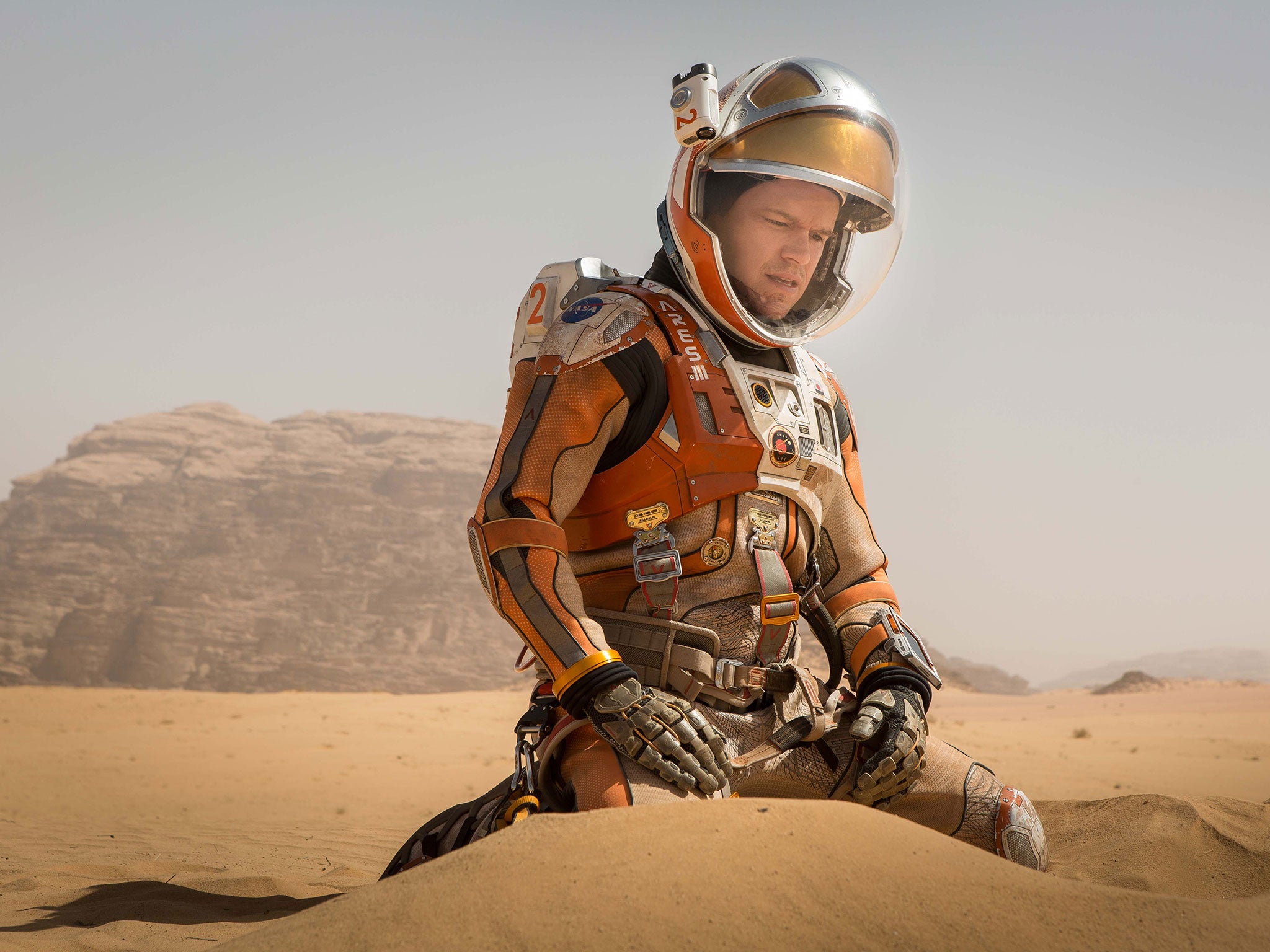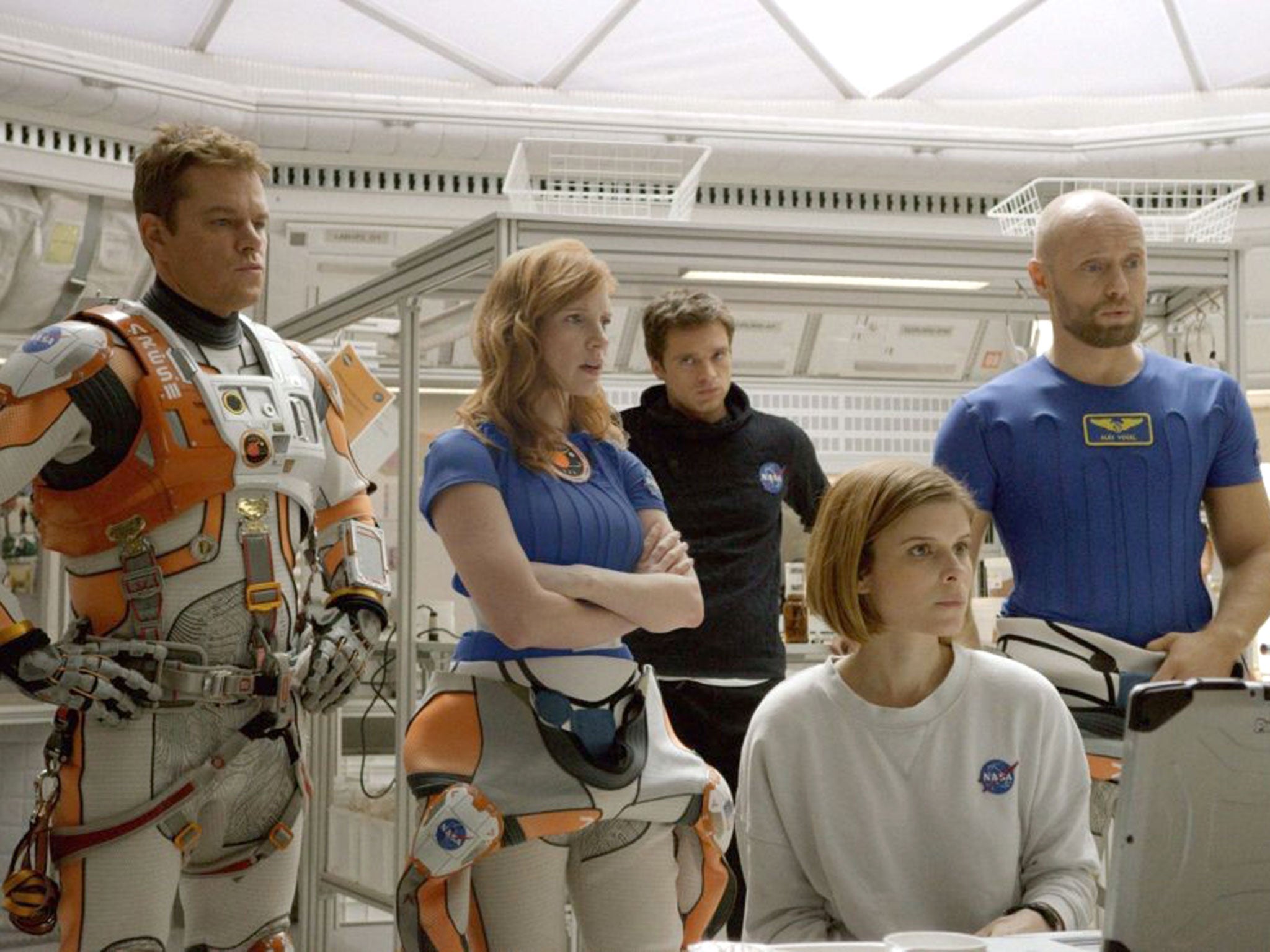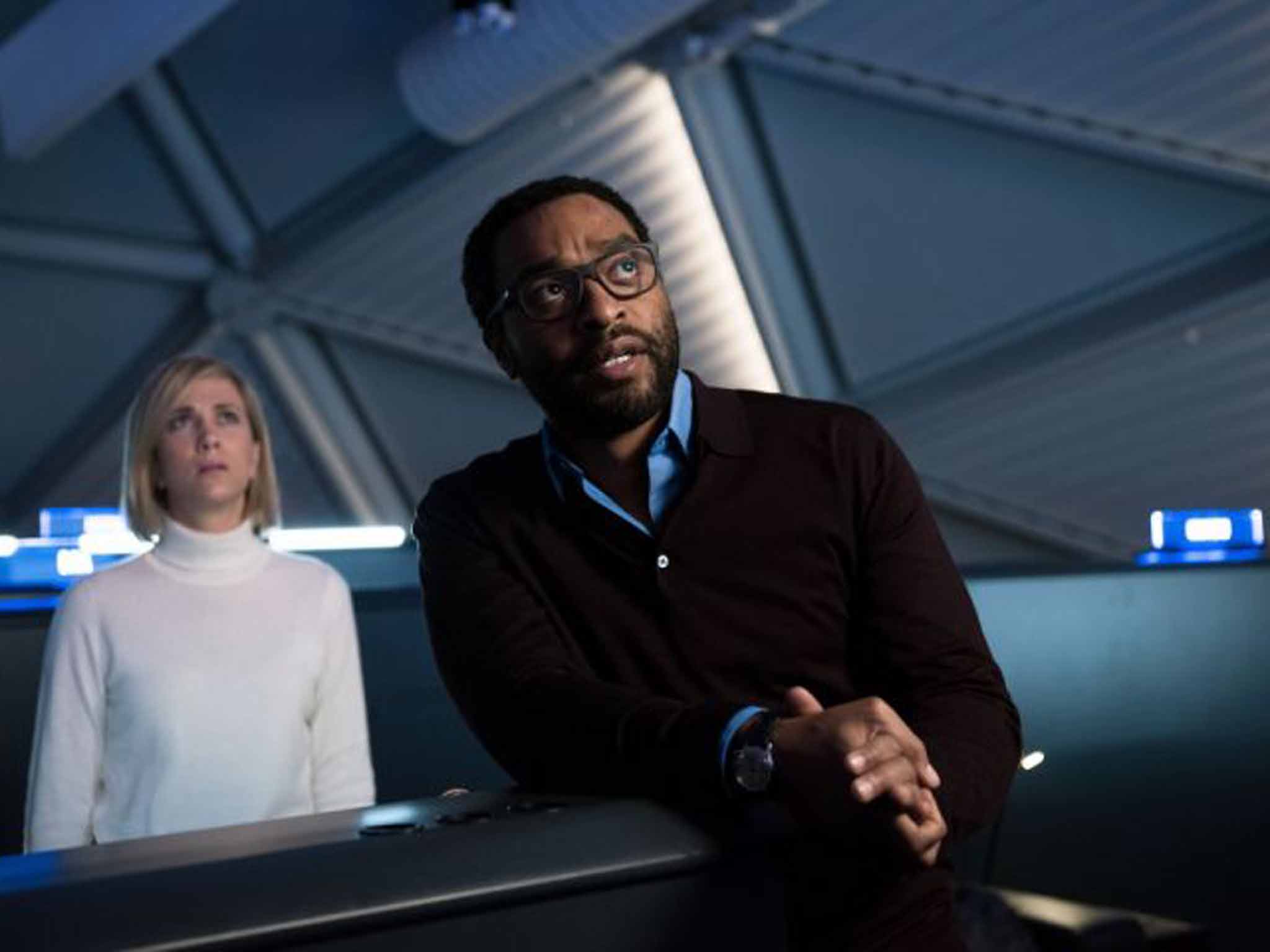The Martian, film review: Ridley Scott's Mars movies is spectacular and uplifting, if a little silly
(12A) Ridley Scott, 141 mins. Starring: Matt Damon, Jessica Chastain, Kristen Wiig, Jeff Daniels, Chiwetel Ejiofor

Ridley Scott made one of the great dystopian films of recent times, Blade Runner (1982), a noirish drama set in a brooding, rainswept Los Angeles in which humans and replicants alike behaved badly. Earlier in his career, Scott's equally bleak 1979 film, Alien, treated us to a grisly scene in which John Hurt's innards seemed to explode as a creature emerged from within him. His new feature, The Martian, is sci-fi in a very different register. This is utopian storytelling. The pleasure lies in Scott's celebration of the resourcefulness of its protagonists in the most daunting circumstances.
The main character, astronaut and botanist Mark Watney (Matt Damon), is stranded many millions of miles, and several years, from home but won't let his predicament get him down. He is desperate to stay alive. If he doesn't, his attitude is, well, shucks – dying for something “big and beautiful” he can live with.

This is a survival story in which there are no villains. Nor, in spite of the stomach pains Watney experiences early on, are there any extra-terrestrial organisms taking possession of the hero's body. Crucifixes appear briefly but religion isn't a factor. Secretive Chinese scientists appear briefly but the film isn't about the space race, ideology or geo-politics. The Martian is rousing and original fare – and, almost certainly, the most optimistic film Scott has made. It has its Pollyanna-ish moments, with scenes of exultant characters high-fiving in the control rooms after each mini-breakthrough, but it is on an epic scale worthy of 2001: a Space Odyssey and it generates plenty of tension. Howard Hawks would have approved of the unflustered professionalism with which its characters solve every problem thrown at them.
Early on, we are treated to a spectacular storm. Watney is part of a mission to Mars, led by Jessica Chastain's Commander Lewis. The skies darken. Filaments, dust and debris fill the air. The astronauts stumble around with only the torches in their helmets to guide them. The scene boasts tremendous sound editing, interweaving the ferocious noise of the storm with the bleeps from the astronauts' equipment, their muffled dialogue and Harry Gregson-Williams' sombre score. After the commotion, the crew flee the planet. Watney is left behind, missing and presumed dead.
Like Douglas Trumbull's Silent Running (1972), this is a sci-fi movie with strong eco-credentials. Stranded on the red planet, Watney realises that the only way he can stay alive long enough to be rescued is to grow his own potatoes. Using human excrement as fertiliser, he starts his own allotment, which he tends with a Jeremy Corbyn-like diligence.

We are so used to sci-fi movies in which the heroes shoot martians with ray guns that Scott's botanical approach can't help but seem offbeat and refreshing. Watney's tools are maths and science. Damon plays him in engaging, subtle fashion. If the astronaut is wisecracking on the edge of the abyss, the actor makes us see this is not through flippancy but because he realises the only alternative is despair.
At first, the story (adapted from the novel by Andy Weir) seems to be developing as Robinson Crusoe on Mars. Stranded on his own, with dwindling supplies and oxygen resources, Watney does his best to make himself feel at home. He keeps a video diary and strikes off the days (“sols”, as they are called on Mars). He is relentlessly cheerful, far more so than the stranded scientist Damon played in Christopher Nolan's Interstellar. The film-makers contrive some slapstick involving explosives and there is a running gag about Commander Lewis's disco collection, which he listens to under sufferance because he has nothing else.
In most suspense movies, time is measured in seconds or minutes. Here, it's a matter of years. Watney has provisions to keep him going for hundreds of days. For the viewer, there is a sense of claustrophobia about a 141-minute film which looks as if it will have only one major character, talking primarily to himself. Gradually, though, the canvas broadens. Scott begins to cross-cut between Watney on Mars, the Nasa scientists on earth, puzzling what to do about getting him back, and the crew members from his mission on their slow journey home.

Scott has assembled a formidable supporting cast, many of whom would normally expect to have leading roles. Chiwetel Ejiofor is the resourceful but anxiety-ridden Nasa Mars mission director Dr Kapoor. Jeff Daniels is the Nasa Director Sanders, who initially seems a sinister figure. Kristen Wiig is the space agency's media boss Annie Montrose, trying to put a positive spin on a story that could destroy confidence in the agency. Chastain's Commander Lewis, another of the strong female characters found in Scott movies, is both steely and sympathetic.

Watch Apple TV+ free for 7 day
New subscribers only. £9.99/mo. after free trial. Plan auto-renews until cancelled.
ADVERTISEMENT. If you sign up to this service we will earn commission. This revenue helps to fund journalism across The Independent.

Watch Apple TV+ free for 7 day
New subscribers only. £9.99/mo. after free trial. Plan auto-renews until cancelled.
ADVERTISEMENT. If you sign up to this service we will earn commission. This revenue helps to fund journalism across The Independent.
There are similarities here to the recent disaster movie Everest. Certain lines (“This is space, it does not cooperate”) echo what the beleaguered climbers said about the mountain. As a survival story, the film also overlaps with Alfonso Cuarón's Gravity. As in Cuarón's film, the most lethal moments are often the most graceful – for example, astronauts gliding through space in dream-like slow motion.
Scott isn't above resorting to cheap melodramatic tricks. The use of David Bowie's “Starman” seems obvious; the 1970s Abba and disco references eventually begin to grate. Some of the shots of the red planet look a little ersatz. Yet The Martian still makes uplifting viewing. There is an idealism at its core – a belief that humans pushing themselves to their physical and intellectual limits while showing respect for one another can solve the most daunting problems. Scott throws in enough eye-popping 3D spectacle and debunking humour to stop it from seeming too sanctimonious.
Join our commenting forum
Join thought-provoking conversations, follow other Independent readers and see their replies
Comments
Bookmark popover
Removed from bookmarks